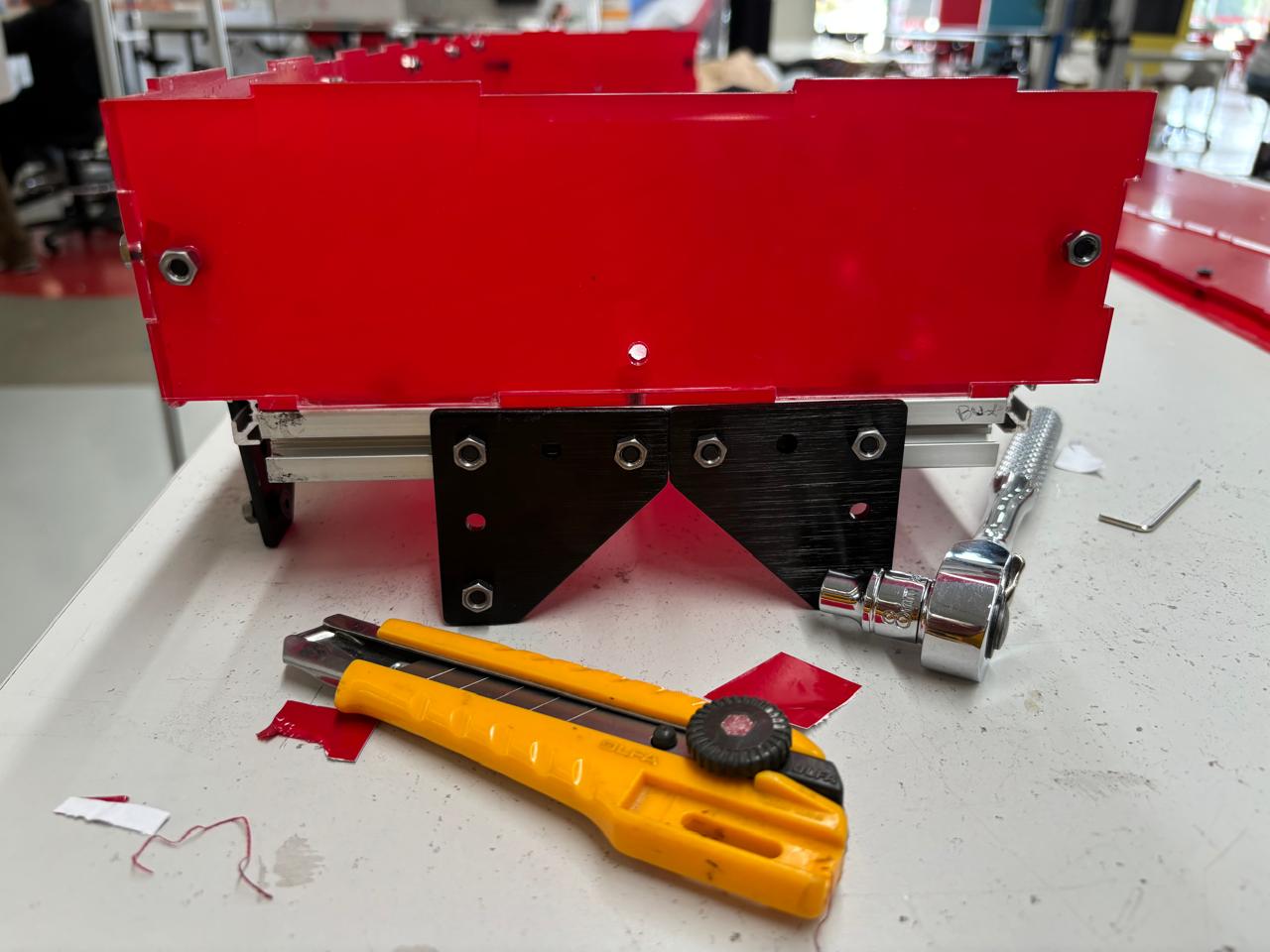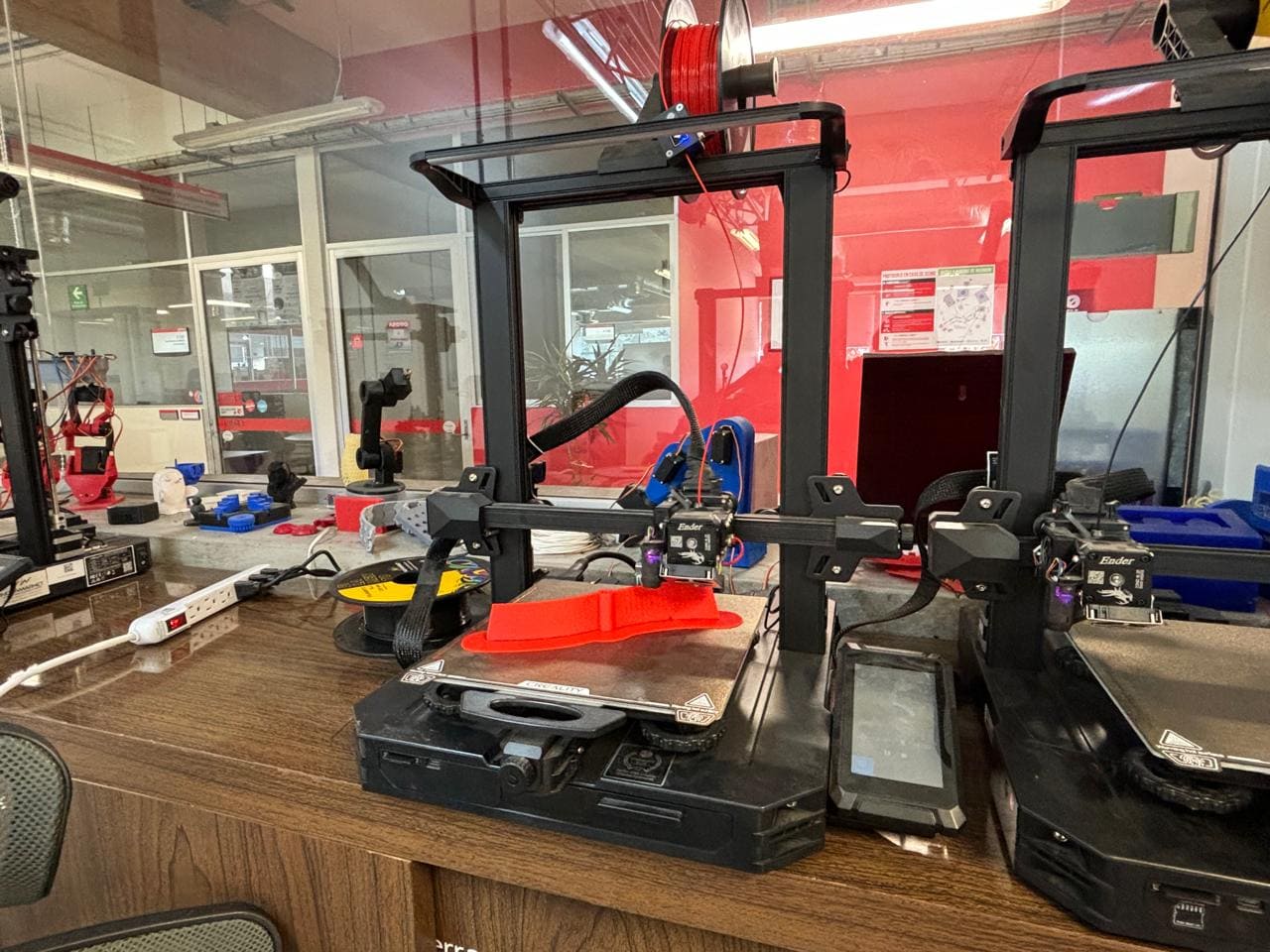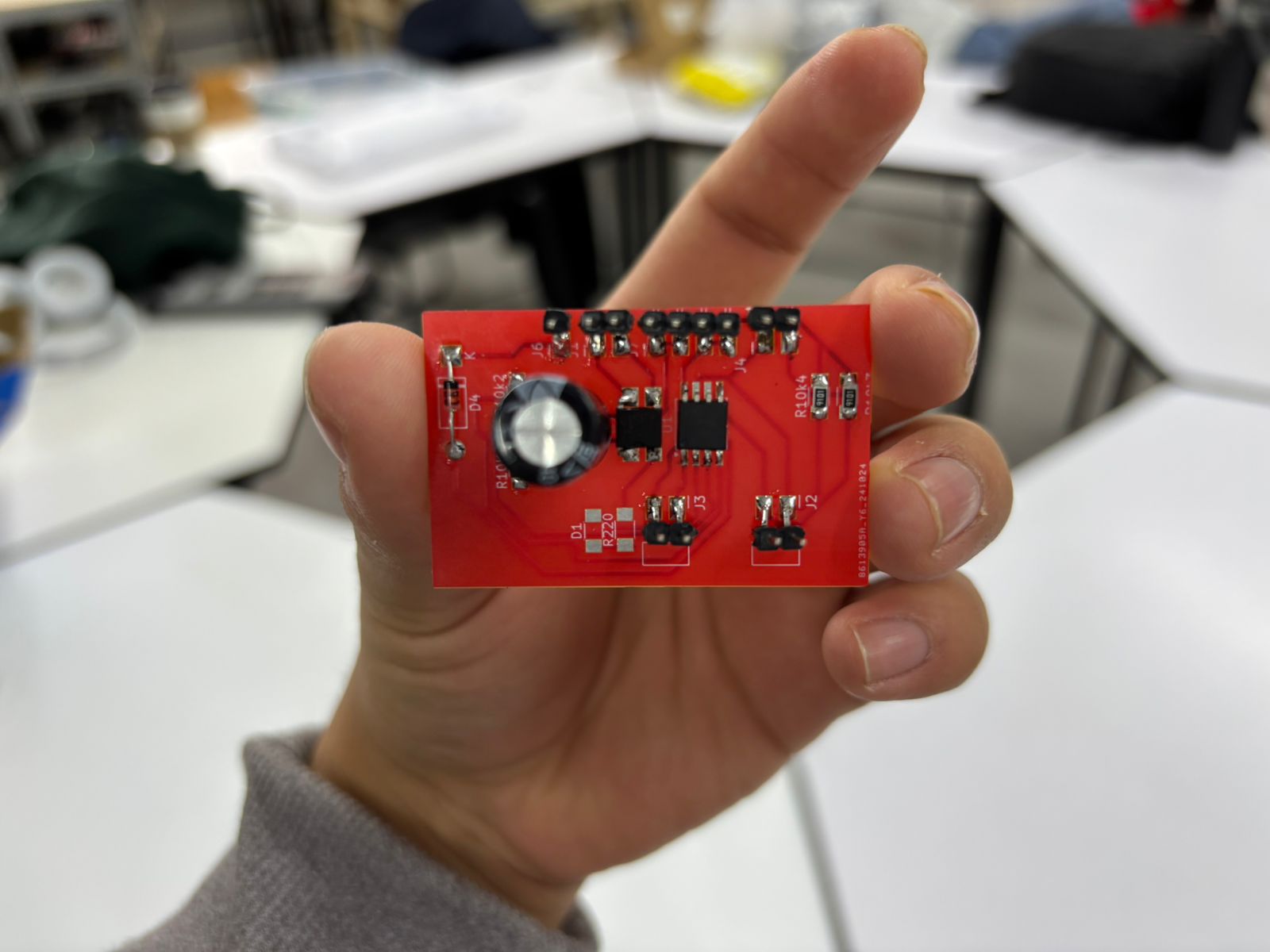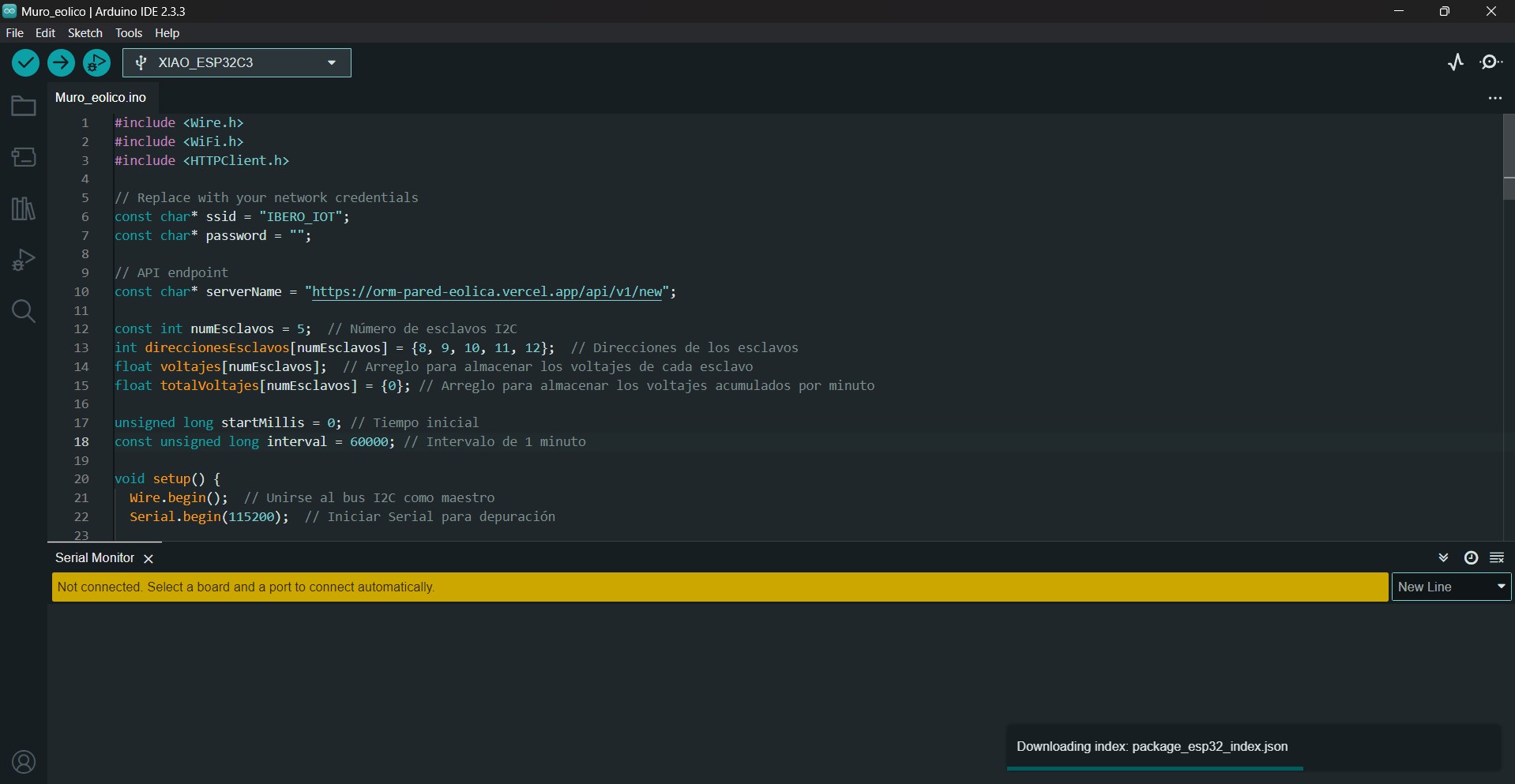Prototype Assembly
Main Structure Assembly
1. Structure and Support
The main structure was assembled using aluminum profiles, to which specific joints were added to improve stability. Angular joints were used to reinforce the corners and areas where more weight would be supported.






2. Screws and Nuts
Screws were used to secure the joints to the aluminum profiles. These screws fit directly into the profiles and are then tightened with nuts, ensuring a solid and sturdy assembly.

Propeller Installation
1. Tube Mounting
The propellers were mounted on tubes connected directly to the motor couplings. This allows the propellers to spin when powered by the motors.



Bottom Bearings
Bearings were installed at the bottom of each tube, helping to keep the tube in position while allowing it to spin freely, facilitating smooth and unobstructed movement.



Alignment
It is crucial that the propellers are perfectly aligned to ensure efficient rotation and prevent mechanical friction or issues.

Integration of Electronic Components
Motor Installation
NEMA17 motors were installed at the top of the structure, oriented downward, each coupled to the propeller tubes through couplings. The motors were firmly attached to prevent unwanted movement.

Wiring and Organization
The wires were carefully organized to avoid interference with the propellers and other moving parts.

Alignment Verification and Physical Adjustments
Propeller Alignment
Tests were conducted to ensure each propeller was properly aligned and rotated without interference. This involved manually adjusting the tube position and performing rotation tests.

Additional Adjustments
The couplings were checked to be securely fastened, and no loose parts were found in the structure.
Assembly Issue Solutions
Extensive Wiring
One of the main challenges was managing the number of cables needed for the motors and sensors. They were carefully organized to avoid tangling.
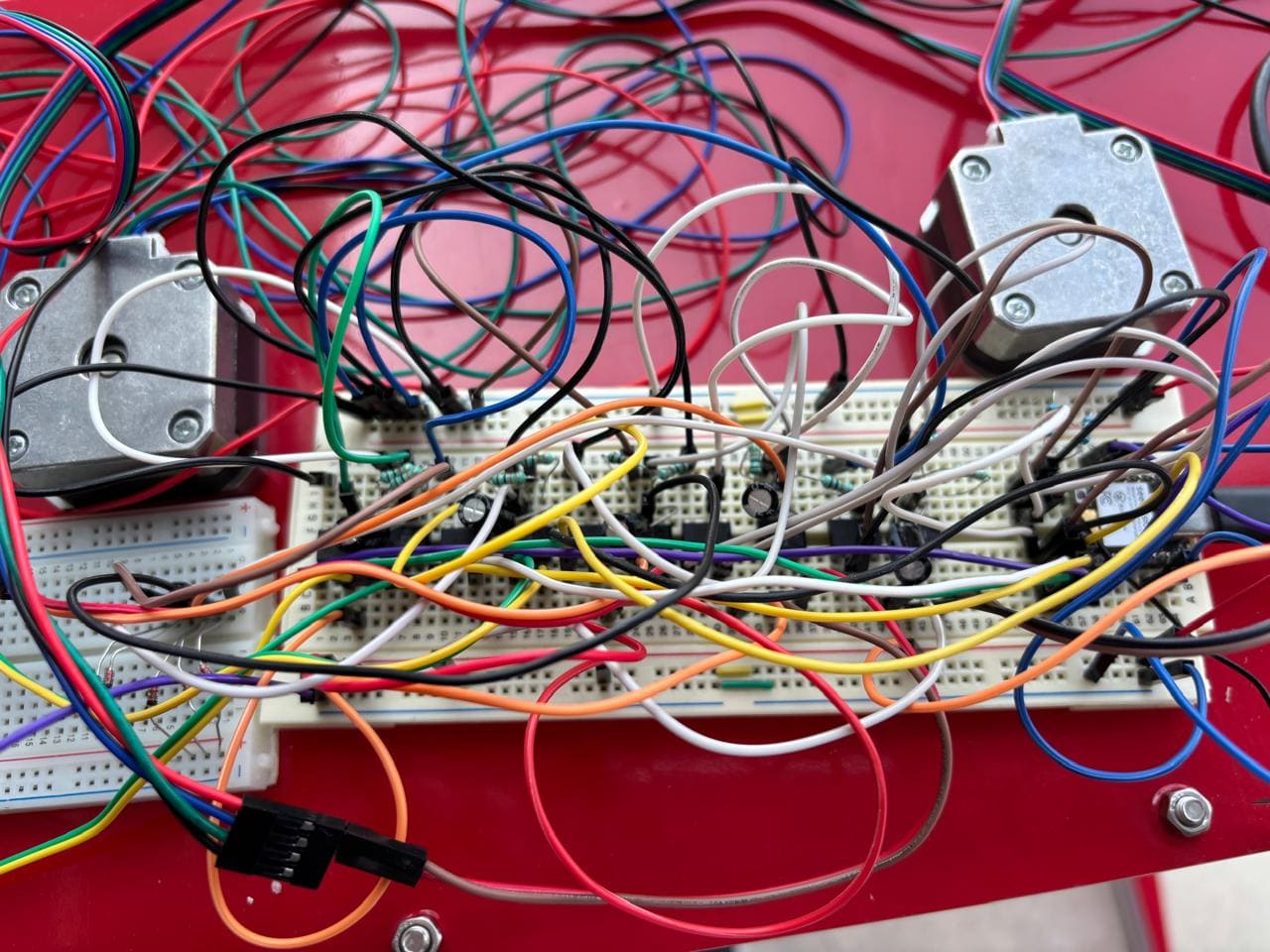
Additional Reinforcements
Extra joints were added in critical areas to increase stability, especially in points where excessive movement was detected during initial tests.






Final Adjustments
Before the final test, all connections, screws, and supports were inspected to ensure the assembly was completely secure.
Assembled prototype


